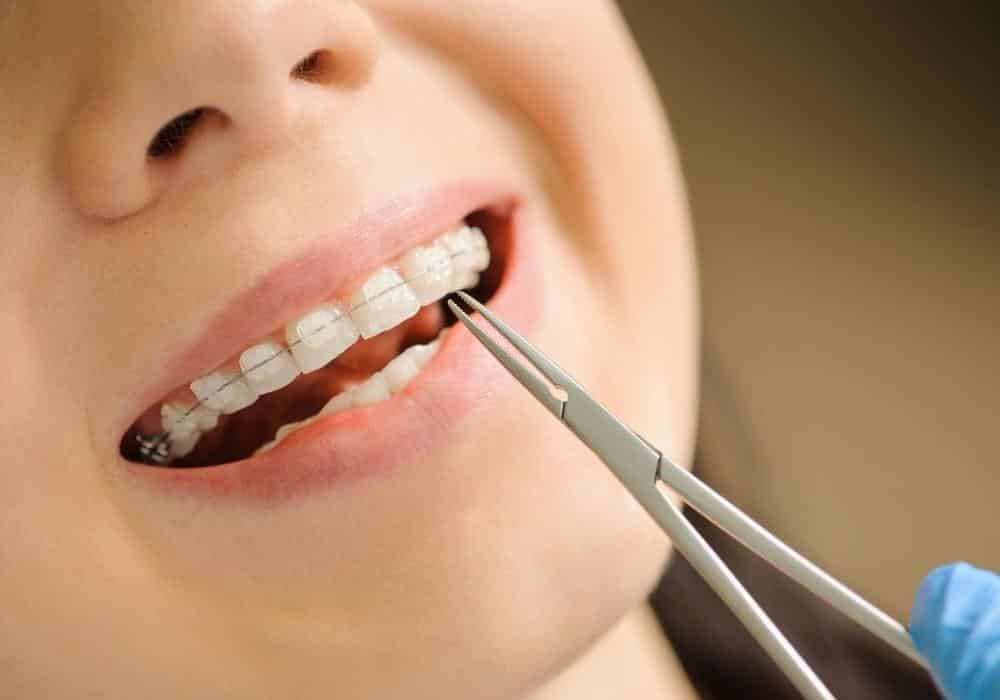
Hi, you’re chatting with Amy. If you could please fill out all your details below, I will be in contact with you shortly.
Braces, New Developments
A new generation of brackets for braces has been developed by 3M. The main advantage of this new brace is that it is ‘flash free’.
Apr 9, 2024

Faster process
A new generation of brackets for braces has been developed by 3M. The main advantage of this new brace is that it is ‘flash free’. This results in less bonding time and reduces the time that the patient spends having their braces fitted. This makes for a speedier process for patients to have braces put on now.
The patient experience is also enhanced during the course of treatment as the adhesive agent does not stain, unlike the excess cement that is often left on teeth with other luting agents. This system has been evaluated by orthodontists in USA, Europe, Canada and Australia.
Bonding braces
Orthodontists usually remove excess adhesive flash after seating braces as this excess flash can stain or discolour. Removal of the flash is time consuming and can compromise the bond integrity. Reduction in the time that braces can be bonded enhances comfort for the patient as it means less time in cheek retractors.
A flash-free adhesive has been developed by means of using a compressive material and lightly filled resin formula. The compressible mat lets the resin seep out to fill the space between the bonding base of the brace and the tooth. The surface tension of the low viscosity resin allows it to wet the tooth surface well and form a fillet around the bonding base, instead of forming the irregular clumps of adhesive flash typically produced by paste adhesives. In this application the size of the fillet is constrained by the precise amount of resin determined for each type of tooth. As a result the flash free braces offer a bonding procedure with no need for the flash removal step so that orthodontists can focus on positioning of the braces.
Enhanced precision
Attempts at removing flash sometimes inadvertently results in moving the brace from its ideal position on the tooth. In the best case situation this brace movement is detected and the brace is repositioned, increasing the bonding time for both the orthodontist and patient. In the worst case situation the brace movement is not detected until the second visit necessitating repositioning of the brace and possible delay in finishing treatment.
For years orthodontists accepted cleaning excess cement around braces as an unavoidable obstacle of orthodontic practice. Fearing the consequences of this excess flash of cement such as white spot lesions, possible decay upon debonding braces, and staining around the margins of braces, orthodontists spent considerable time removing it. This lead to significant inefficiencies during bonding braces as the braces were constantly knocked from their ideal positions.

Advantages
- Faster time for having braces fitted now
- No staining around the edges of the braces
- Enhanced comfort for patients due to less time for bonding the braces
- Reliable, h2 bond of the braces to teeth
- More accuracy with placing braces in the correct position on teeth
Cost
As with any new technology there are costs associated with developing new technologies. Orthodontists however, should be able to offer the new flash free braces at no additional cost to existing braces. Many orthodontic problems require only simple treatment and you might find that the cost is lower than you thought. In general the cost of braces is generally lower than for the clear aligner appliance systems such as Invisalign.
Flash free ceramic braces are more expensive to manufacture than stainless steel braces so it may cost more to have ceramic braces. Many orthodontists, however won’t charge an additional fee for flash free ceramic braces as they want their patients to feel comfortable with the appearance of the braces and to have a better overall experience.
